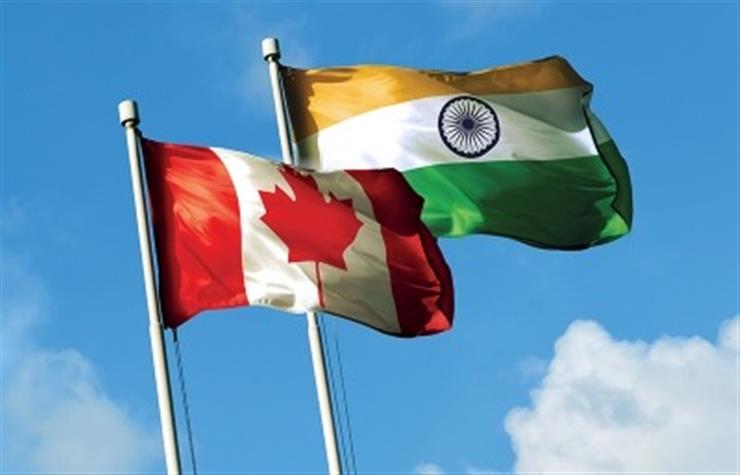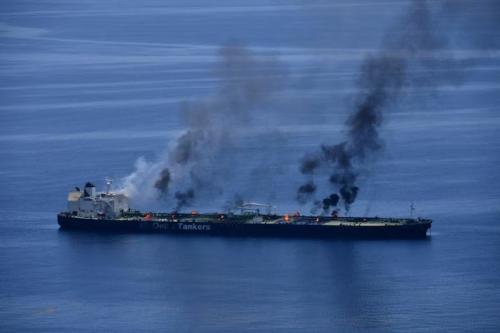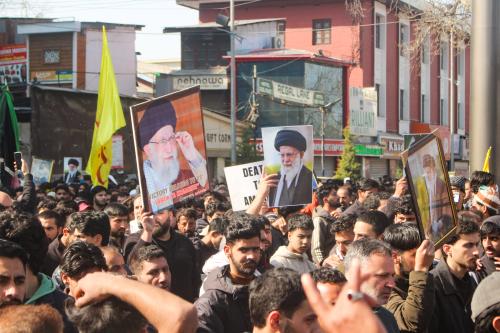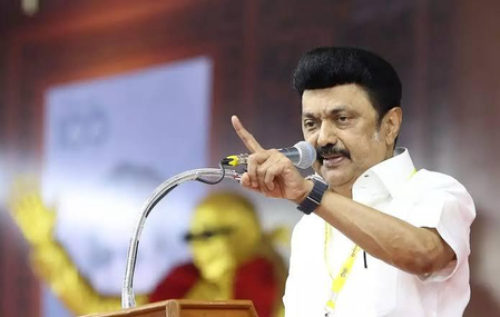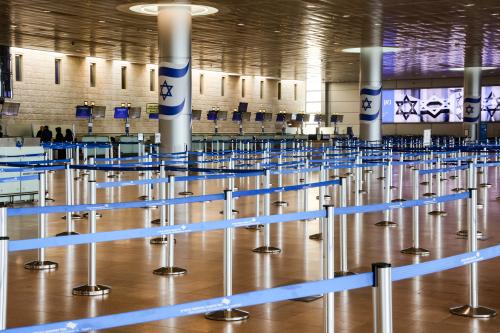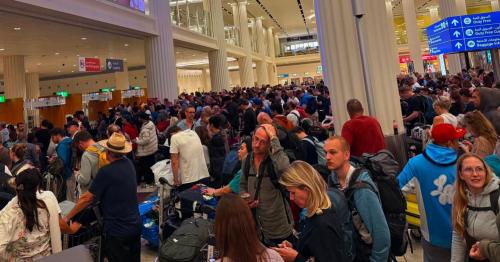By Fatima Hasan
The ongoing conflict between India and Canada has created a furor among the countries on mounting international interference concerns over the continued investigation of the killing of a Sikh separatist leader in British Columbia (BC) in 2023.
The conflict started in June 2023 when Sikh community leader Hardeep Singh Nijjar was shot dead outside his Gurudwara in Surrey, BC. Thereafter, on September 18 this year, Canadian PM Justin Trudeau revealed that Canadian intelligence agencies are "pursuing credible allegations of a potential link" between India's government and Nijjar's death. This kick started the cold war between the two countries which have recently expelled each other’s diplomats.
As the entire conflict brings in the question of the safety of Indian immigrants in Canada, the Indian Americans view the standoff as a political war against India by the five countries - Australia, UK, USA, New Zealand and Canada--considered as Five Eyes.
Fatima Hasan, who has authored this article for India Tribune, interviewed a few Indian Americans to ascertain their opinion on the issue. The three questions asked were - How Indian Americans view the entire standoff, who do they think will benefit and what role can USA play?
- Their views
“Trudeau is in big trouble with his party and his country, Canada. His approval rating has been lowest ever since he was caught winning twice with the help of China. He is partnering with Khalistani party and supporting their agenda and that will bounce back badly on him in the next election. On the other hand, Modi's policies are top notch for India and the world. In the end, Trudeau will be a big loser,” said Dinesh Gandhi, a financial advisor based in Chicago.
He recalls that in May this year, an official probe by a domestic agency found that China meddled with Canadian federal elections in 2019 and 2021.
Stating that a leader of a country should know what he is talking about, Kalpesh Joshi said, “Trudeau, being the leader of such a great country, has resorted to this tactic just to save his seat since some MPs are supporting him to keep his majority. And for that, he should not be favouring them but rather be on the neutral side and not make baseless comments.”
So, Joshi thinks in this case, PM Modi has nothing to lose or prove as the world knows the truth. Currently, Justin Trudeau is facing internal party revolt asking him to step down. The liberal cabinet is divided on this with about 30 of them signing an internal document calling on Trudeau to step aside.
Joshi warns that “Trudeau should stop this if he cares about Canadian economy and its people as Indians make sizeable population and contribution to the GDP.” India is a self-reliant country and does not need any interference to show its mandate. “This conflict is on for over a year,” he reasons. “How is it that Trudeau did not show any proof yet to support his allegation?” asked Joshi, who is a regional director for the Asian American Hotel Owners Association.
There were 1,021,356 registered Indians in Canada as per Statisca.com in 2020. “We are requesting a dialogue between the consulates of India, Canada and the Punjabi community in North America as they need to have a peaceful dialogue to resolve issues rather than exchange tirades,” said Porus Dadabhoy, as he stresses for a debate.
Dadabhoy represents an NGO which mainly focuses on uniting for peace in world order. He said that he got a request from the community to write to the Consulate General for dialogue. Predicting the future, he said, “It will have negative effects if the conflict continues as it is.”
Talking about USA's role in resolving the conflict, he said, “whoever gets elected in USA has Middle East conflict first to focus on.” Dadabhoy is the President of United for Peace, an NGO dedicated to the principles of Mahatma Gandhi and Martin Luther King.
As some Indian Americans see it, the conflict has short term benefits for both Indian and Canadian prime ministers.
Dr Manish Brahmbhatt, a medical doctor, believes that Indian Prime Minister Narendra Modi is taking a strong stand on the issue and “that's why India will benefit from this conflict.” Recently, in an address to NDTV summit, PM Modi said that India does not believe in ‘taken for granted’ relations and that the ties are based on trust and credibility amid the diplomatic standoff with Canada according to a report in Deccan Herald.
Asking the Canadian government to hand over the proof for their claim, Brahmbhatt said, “India is a peace-loving country and it has not attacked other countries without any provocation or purpose.” He concludes that “With time, this issue will die down as Indians in Canada are helping the country grow.”
Whereas Krishna Bansal, President of ICO, believes that Trudeau started the whole conflict for political advantage. But, he said “it is not going too well and neither of the countries will engage in it for so long.” According to him, it is going to be resolved at some point.
On the impact of the conflict on USA, he said “It will not have any impact on US. As far as India-US relations are concerned, it depends on whoever becomes President here. If we get President Trump re-elected, that will be much more beneficial for India rather than under Kamala Harris. If Kamala Harris becomes president, she will be more left-oriented and that may be more advantageous for Canada versus India. The U.S. is Canada’s close neighbour.”
Holding a similar view, Avinash Gupta, President of Federation of Indian Associations, said, “Justin Trudeau is doing this for his political survival for gaining Khalistani support. But that was not the right thing to do. And I think that Sikh leaders are going to come to bite him because he's not a Khalistani terrorist. This guy was a Canadian terrorist.”
Hardeep Singh Nijjar was a Canadian Sikh involved with the Khalistan movement. He arrived in Canada in 1997 as a refugee using a fraudulent passport and was granted citizenship in 2007 as per his Bio on Wikipedia. Gupta says, “Without having concrete proof, making an allegation on India, which is emerging as a global power, is not in the self-interest of Canada either.” So, he said, “they are going after the terrorists.” This, Gupta believes, is going to hurt Canada as he recalled the Air India Flight 182 disaster. In 1985, a passenger jet explosion off the coast of Ireland killed 329 passengers including crew members on a flight, which was en-route from Toronto to London. “That was the first aviation terrorism”
For Haribha Patel, President of Senior Group, USA can solve the India – Canada standoff. “Without any proof, actually Canada put an allegation on India and the world only believes in proved things. Canada is connected with terrorist group- Khalistan group,” said Patel.
According to Wikipedia, the Khalistan movement is an independent movement seeking a separate homeland for Sikhs by establishing ethno religious sovereign state in Sikh majority Punjab State of India. “Time will tell the truth. When Trump will take over as our next President, both Canada and USA will have relationship with India,” Patel said. After the USA election, he believes,” this conflict will automatically be solved.”
Explaining the issue in clear terms, Satish Gabhawala said “It's straightforward truth that Canada and India need each other. But Canada should be looking at the more positive and global view, rather than getting the political side into the picture.”
“To the best of my knowledge, I understand that Trudeau needs a vote to stay as prime minister. But to please a very small minority, he is jeopardizing and risking the relations with a country like India, which has relations with every major country,” Gabhawala added.
According to the World population review.com, Canada has the highest Sikh population estimated to be 771,790 just after India. Gabhawala points out that “India shares a good relation with Russia, America, Germany, France, Australia, England and even with Middle Eastern countries like Israel and Iran.”
So, Gabhawala, a retired Federation of Indian Associations, Chicago, trustee director concludes, “Trudeau needs to value the reputation of India and not support a fugitive. And whatever happens, the investigation should be fair.” He believes in a fair dialogue between the two countries. He said “after the investigation, both India and Canada have to work out to resolve the issue via a dialogue and not be hostile and they should avoid pre-conclusive decisions and certain actions which are unwarranted.”
On the role the U.S. can play, Gabhawala tells that the U.S. government should mediate to establish facts and resolve the conflict. "I do recognize that the US and Canada have more favourable relations than the US and India. But the U.S. government should stay neutral,” he stressed.
The United States Government official site reads that US and Canada are stalwart allies.
Bharat Barai, chairman of US Indian Community Foundation, gives his detailed insights on the issue.“ In Canada, USA and certainly most Sikhs in India are good patriotic citizens and they don't subscribe to this Khalistani ideology.” To get benefit of a small number of radicals, Barai says, “Trudeau is playing a dangerous game and it is very much backfiring.” There are 800,000 Sikhs in Canada but only a small portion of them support Khalistan separatist movement.
Barai points out the double standards of Justin Trudeau precisely. He said that Trudeau talks about freedom of expression at one point and then calls out the questions by independent reporters as interference in Canada’s internal affairs. Recently, in a hearing on foreign interference in Canadian elections, a statement was made by Indian diplomats that if Khalistanis can talk about bifurcating a country then they can talk about sending Hindus from Canada to India or putting a bomb in India.
Barai questions if Trudeau can support Khalistan and how it is freedom of expression when no one can comment on it. He said that when every news is in newspapers and everyone has access to it, how can Trudeau call it interference in internal affairs? “So I think,” Barai reasons, “What Trudeau is doing is going to hurt him in Canada.”
Elaborating on how it will play out for Trudeau, Barai explained “Except for very small fringe minority of Khalistanis, majority are Hindus who don’t take out rallies or speak against but they are going to vote against Khalistan. So, I think it's going to hurt Trudeau with both Sikh and other voters in Canada. Most people in Canada—especially the whites-- they don't want to get involved in this mess because Trudeau has been giving illegal migrants visas and citizenship.
For instance, he said, “Nijjar was denied asylum three times and ultimately ended up getting the citizenship.” Currently, according to a statement of Indian External Affairs Ministry, there are 26 extradition requests from India pending with Canada since 2003. “Even people who are charged with murder and violent crimes are sheltered by Canada,” argues Barai. “So law and order has to apply both ways,” said Barai as he believes that efforts by PM Modi and External Affairs Minister to resolve the conflict will not make any difference as long as Trudeau is prime minister. He thinks it will stay the same, under Justin Trudeau’s foreign policy.
Barai thinks that only a new regime in Canada can reset the relations. As a common friend, Barai says, “USA can mediate but the best thing will happen when government changes in Canada.”
For Dr Suresh Reddy, the Canada-India standoff is a trigger to Justin Trudeau who could not stand to see the fast-growing Indian economy. He explains “India became the fifth largest economy in the world. In 10 years, India came that far. Which country has done that? Not even America” he said. “So I think they're jealous of India and they want to bring it down.” (According to the IMF World Economic Outlook released in 2019, India became the fifth largest economy in the world.)
According to him, “Trudeau is surviving because of Khalistani support. He is just looking after his interest to continue to be in power. And Khalistanis, ‘I was told, make up 20% of the membership in Canadian Parliament.”
“I don't think if President Trump comes back, things might change. Trump is not fond of Trudeau. When he was the President, Canada and US did not have the best of relations,” pointed out Reddy, who is a trustee of Oakbrook village. Still today, Reddy says, “Trudeau doesn't have proof of Nijjar being killed by (someone from) the Indian High Commission. He is just giving a theory, but not actual proof.“
Recently, in his testimony before a Canadian inquiry into foreign interference, Trudeau conceded that his government had shared intelligence on the matter but it did not possess definitive proof of India's involvement.
Voicing similar opinion, Sreedhar Damle, a research writer, views the conflict only as the consequence of political powers playing their cards. “Western sphere and all these Five Eyes countries - US, Canada, England, Australia and New Zealand—are all five English speaking countries and predominantly Christian. They ruled over all these years and they want to continue to rule and cannot see India coming up,” said Damle. These Five Eyes alliance countries have an intelligence sharing pact since World War II and they carry joint surveillance operations.
Talking about how USA and Canada encourage separatist groups in their respective countries, Damle questioned, “Did America take permission from Pakistan against Bin Laden killing? And/or Did Canada seek Indian government's advice about giving citizenship to the so-called separatist groups like Khalistani?” Damle linked the entire situation to international geopolitics. Osama Bin Laden was shot and killed by US in 2011 in Pakistan where he was hiding.
He said “Canada, USA, England, New Zealand, Australia, these Five Eyes Alliance do surveillance on other countries but help and co-operate with only their friendly countries.” Citing an example, Damle said, “There was 9/11 attack in the US. Also, there was an Islamist attack in the UK. 9/11 attacks were four coordinated Islamist terrorism suicide attacks carried out by Al-Qaeda against the United States in 2001. “So these are the things that expose more of the geopolitics, national interest and their interference in the other countries,” he observed.



